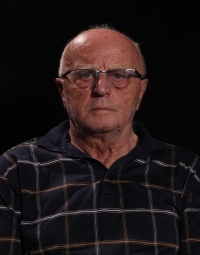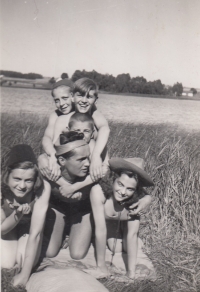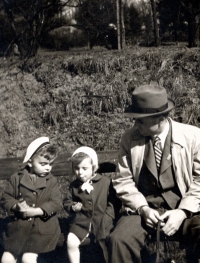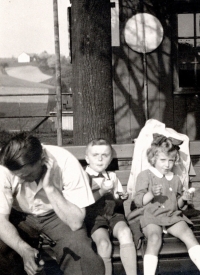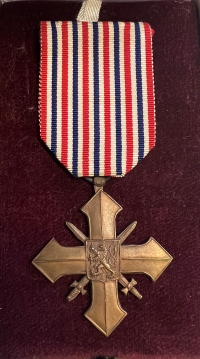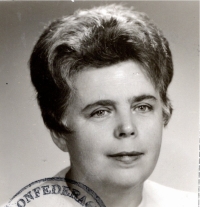Father was executed for helping paratroopers, not even his ashes were given to his family
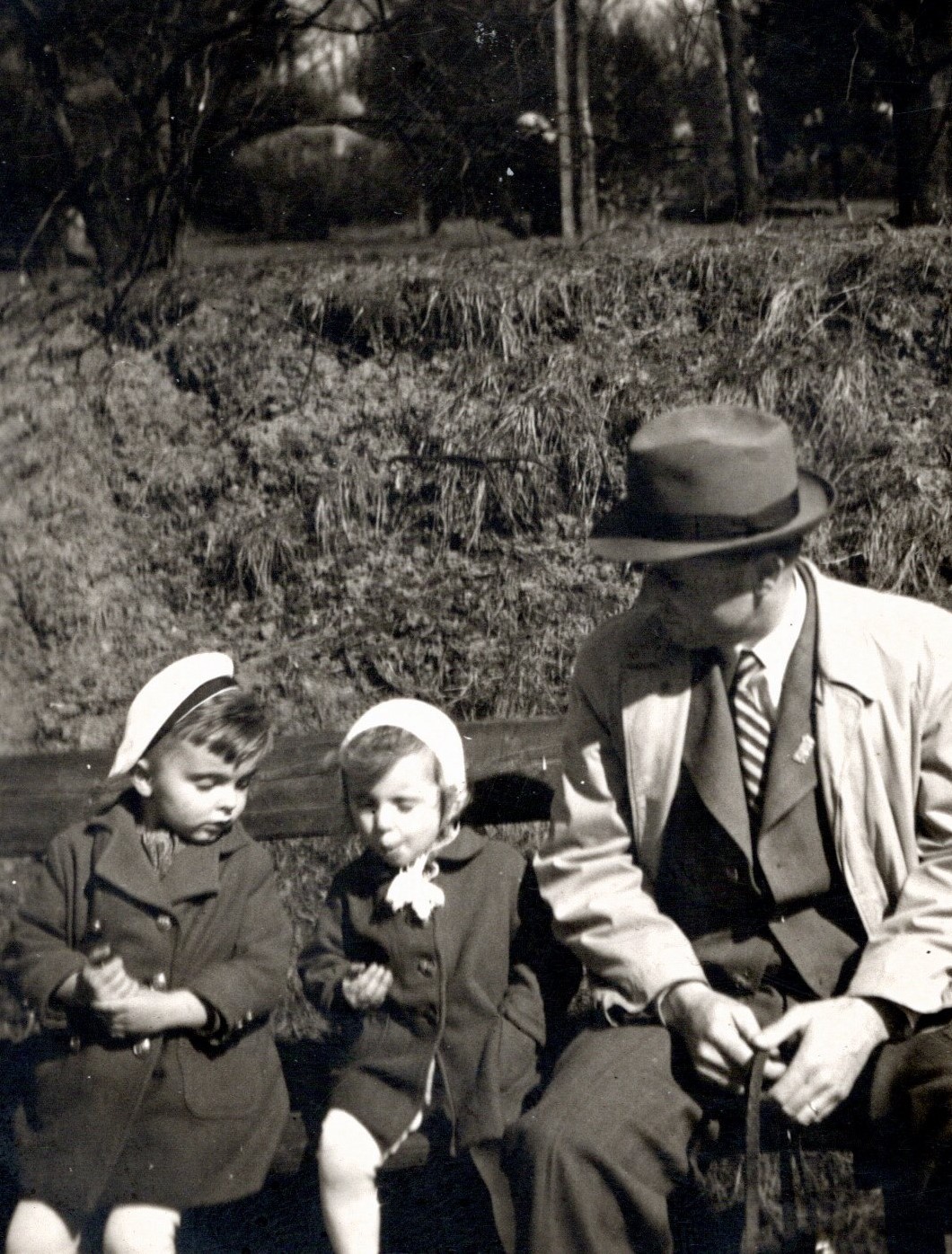
Download image
Vladimír Vokatý was born on 19 January 1936 in Trutnov. His father Jaroslav Vokatý worked at the telegraph construction office in Hradec Králové. He and his wife Pavla Vokatá were active sportsmen in the Sokol. During the mobilization in 1938, his father enlisted. After the occupation of the Sudetenland, the Vokatý family had to move out of Trutnov, and since her father was mobilized at that time, Pavla Vokatá, her son Jaroslav and one-year-old daughter Hana had to arrange the move herself. Her friends from Sokol helped her and found a shelter for them in Červený Kostelec, which was already in the territory of the encircled Czechoslovakia and later the Protectorate of Bohemia and Moravia. They lived in lodgings and his father started working at the post office after demobilization. During the Nazi occupation, Jaroslav Vokatý’s father joined the S21B Sokol resistance group under the leadership of Josef Schejbal, a teacher, who helped Jiří Potůček, a radio telegrapher from the Silver A parachute group, with shelter and other matters. However, the Gestapo discovered their resistance group during the Heydrich Terror and arrested most of its members. They came for Jaroslav Vokatý on 1 July 1942 and on 9 July, after the lifting of the martial law, they executed him together with other resistance fighters at the Zámeček in Pardubice. The bodies were burned in the crematorium and the ashes were probably dumped into the river. Pavla Vokatá was left alone with her children without a steady income, but the family was helped by neighbours and again by friends from Sokol. In 1946 they moved back to Trutnov, where Vladimír started to attend the grammar school and later moved to the industrial school of civil engineering in Hradec Králové. He was an excellent skier and a member of the national team of downhill skiers. After graduating from school, he joined Stavoprojekt Trutnov, studying remotely. In 1958 he finished his studies in architecture at the Czech Technical University in Prague. After 1968, he did not sign a consent to the invasion of Soviet troops, which brought him many complications. He was allowed to stay in his job but was not allowed to travel. He tried to clarify his father’s fate with the help of the family archive, but encountered disinterest of officers, as the Western resistance was deliberately neglected by the communists. After the Velvet Revolution, he became independent and set up his own studio. As an architect he participated in many important buildings, not only in the Krkonoše region. In 2022, he lived and still worked in Trutnov.
